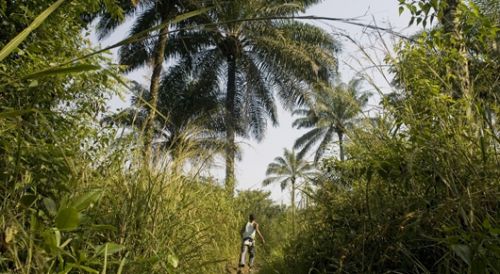AKIPRESS.COM -  The Food and Agriculture Organization released new data on the occasion of the International Day of Forests that confirm that forest areas continue to decline globally, with the biggest losses of tropical forests occurring in South America and Africa, the FAO official website reported.
The Food and Agriculture Organization released new data on the occasion of the International Day of Forests that confirm that forest areas continue to decline globally, with the biggest losses of tropical forests occurring in South America and Africa, the FAO official website reported.
Improving information on forest resources is a key factor in halting illegal deforestation and forest degradation, said FAO on the International Day of Forests (IDF), celebrated by the United Nations today.
FAO is using this year's celebration to discuss ways to improve the availability of information on the state of forests at all levels: nationally, regionally and globally.
"If we want to be serious about halting deforestation, in line with FAO's Zero Illegal Deforestation challenge, this must be premised on the availability of sound information and data," said FAO Director-General Jose Graziano da Silva.
Use of satellite technology to track forest changes
The new assessment of changes in the world's forests shows the decline of forest land use between 1990 and 2010.
According to the updated survey, the area of forest cover decreased by some 5.3 million ha/year, corresponding, over the period 1990-2010, to a net loss equivalent of nearly 4 times the size of Italy or the size of Colombia.
The updated findings of a global remote sensing survey show that total forest area as of 2010 is 3.89 billion hectares or 30 percent of the total land area of the Earth.
Forest loss and gains
Worldwide, the gross reduction in forest land use caused by deforestation and natural disasters over the 20-year time period (15.5 million hectares per year) was partially offset by gains in forest area through afforestation and natural forest expansion (10.2 million hectares per year).
There were considerable regional differences in forest losses and gains. The area of tropical forests declined in South America, Africa and Asia - with the biggest loss in absolute terms in tropical South America, followed by tropical Africa, whereas gains in forest area were reported for subtropical and temperate Asia.
The world's forests are distributed unevenly with just under half the world's forests in the tropical domain (45 percent of total forest area), about one third in boreal (31 percent) and smaller amounts in temperate (16 percent) and subtropical (8 percent) domains. This is the first consistent survey to show the changes in forest land use for those four main ecological domains over the past 20 years.
To develop the survey, FAO worked with more than 200 experts from 107 countries. The work is the result of a partnership between FAO, its member countries and the European Commission Joint Research Centre (JRC).
Forest communities are key for preserving forests
Graziano da Silva also underlined today that the local forest communities play a crucial role in responding to two major challenges that forests are facing today: deforestation and forest degradation. At the same time, he noted, they are among the world's most vulnerable populations.
He urged governments to support vulnerable populations and adopt better governance policies to enable millions of people who rely on forests for their livelihoods to benefit from numerous forest products and services.
"In 2014, we are celebrating the International Day of Forests in the context of the International Year of Family Farming," said Graziano da Silva. "Forest people are part of this group of family farmers, pastoralists, artisanal fishers, and indigenous and traditional communities. They represent hundreds of millions of families that play a key role in guaranteeing food security in many countries. In many cases, they are also directly responsible for the sustainable management of forests and natural resources. But, at the same time, they are among the world's most food insecure."
"This meeting is an opportunity to expand the dialogue on what we need to do, collaboratively, to support them and strengthen sustainable forest management," he added.
Last year the United Nations General Assembly proclaimed 21 March the International Day of Forests. The Day celebrates and raises awareness of the importance of forests.
